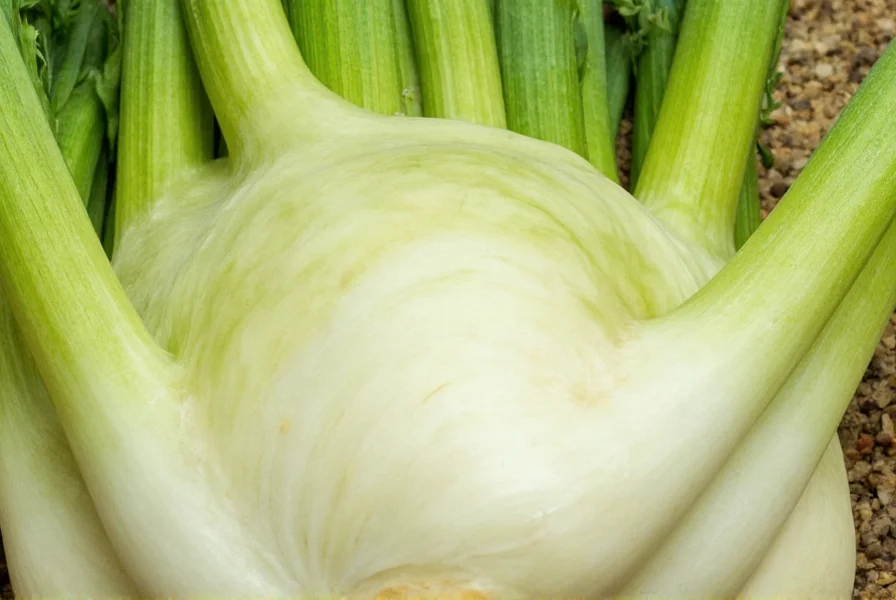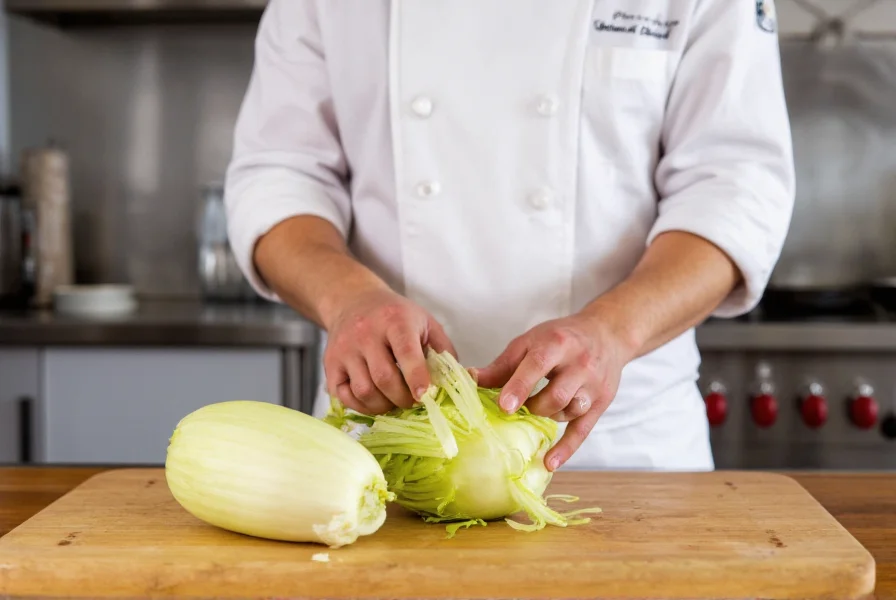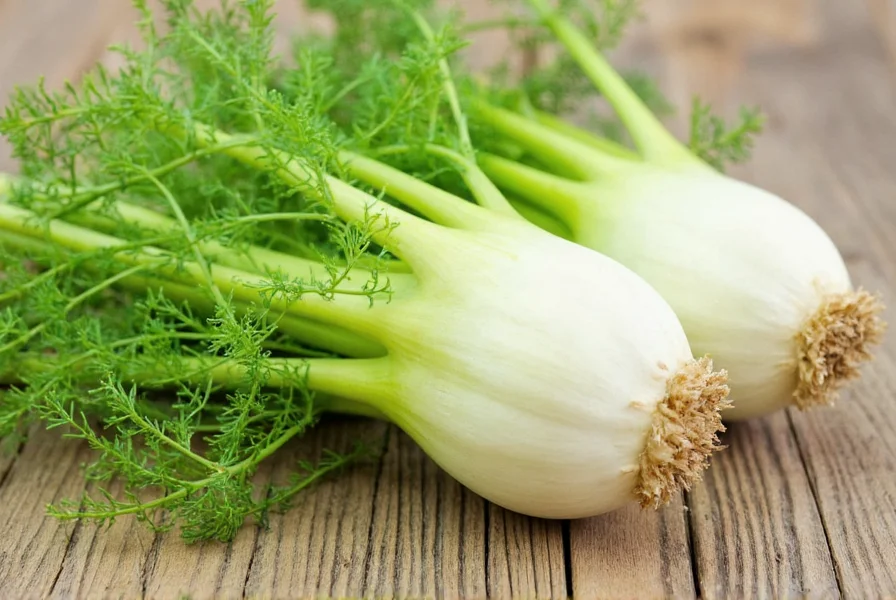Fennel isn't just a flavorful addition to your kitchen—it's a nutritional powerhouse that deserves a regular spot in your diet. This aromatic vegetable, with its distinctive licorice-like flavor, offers impressive health benefits that extend far beyond its culinary uses. Understanding fennel nutritional composition helps health-conscious eaters make informed choices about incorporating this versatile vegetable into balanced meal planning.
Comprehensive Fennel Nutritional Profile
When evaluating fennel nutritional values, it's important to consider both the bulb and seeds, as each offers distinct nutrient profiles. The following table details the complete nutritional breakdown for raw fennel bulb per 100-gram serving, based on USDA FoodData Central data:
| Nutrient | Amount per 100g | % Daily Value* |
|---|---|---|
| Calories | 31 kcal | 2% |
| Total Fat | 0.2 g | 0% |
| Saturated Fat | 0.04 g | 0% |
| Carbohydrates | 7.3 g | 3% |
| Dietary Fiber | 3.1 g | 11% |
| Sugars | 3.9 g | - |
| Protein | 1.2 g | 2% |
| Vitamin C | 12 mg | 20% |
| Vitamin B9 (Folate) | 67 mcg | 17% |
| Potassium | 494 mg | 14% |
| Calcium | 49 mg | 5% |
| Iron | 0.73 mg | 4% |
| Magnesium | 17 mg | 4% |
*Percent Daily Values are based on a 2,000 calorie diet. Individual needs may vary.
Key Nutrients in Fennel and Their Health Benefits
Fennel nutritional analysis reveals several standout components that contribute significantly to health. The bulb contains an impressive array of phytonutrients, while the seeds offer concentrated medicinal properties. Understanding these fennel vegetable nutritional facts helps explain why this plant has been used in traditional medicine for centuries.
Vitamin C and Antioxidant Content
Fennel provides approximately 20% of your daily vitamin C needs in just one cup. This potent antioxidant helps protect cells from damage, supports immune function, and enhances iron absorption from plant foods. Additionally, fennel contains flavonoids like quercetin and kaempferol, which have demonstrated anti-inflammatory properties in scientific studies examining fennel nutritional composition.

Dietary Fiber and Digestive Health
With 3.1 grams of fiber per 100 grams, fennel ranks among the higher-fiber vegetables. This dietary fiber content supports healthy digestion in multiple ways—it adds bulk to stool, feeds beneficial gut bacteria, and may help regulate blood sugar levels. The specific fiber profile in fennel nutritional data shows a balance of both soluble and insoluble fiber, making it particularly valuable for comprehensive digestive support.
Potassium and Heart Health
Fennel's impressive potassium content (494mg per 100g) plays a crucial role in maintaining healthy blood pressure levels. Potassium helps counterbalance sodium's effects in the body, supporting proper muscle function including the heart muscle. When analyzing fennel nutritional information for cardiovascular benefits, this mineral profile stands out as particularly valuable for heart-healthy eating patterns.
Fennel Seeds vs. Bulb: Comparing Nutritional Values
Many people don't realize that fennel seeds offer a completely different nutritional profile than the bulb. Understanding the complete fennel plant nutritional breakdown reveals complementary benefits:
- Fennel bulb: Higher in water content, vitamin C, and potassium; lower in calories
- Fennel seeds: Concentrated source of minerals (especially iron and calcium), fiber, and essential oils containing anethole
One tablespoon (6g) of fennel seeds contains approximately 20 calories, 1g protein, 1g fat, 3g carbohydrates, 2g fiber, and provides 10% of your daily iron needs. This makes fennel seeds nutritional value particularly valuable for addressing certain mineral deficiencies.
How Fennel Compares to Similar Vegetables
When evaluating fennel nutritional facts in context, it's helpful to compare it with other common vegetables. Fennel stands out for several reasons:
- Higher in fiber than celery (3.1g vs 1.6g per 100g)
- Contains more potassium than cucumbers (494mg vs 147mg per 100g)
- Offers significantly more vitamin C than onions (12mg vs 7.4mg per 100g)
- Has a lower glycemic index than many root vegetables
This comparative nutritional analysis shows why fennel deserves attention in discussions about nutrient-dense vegetable options for balanced diets.
Maximizing Nutrient Retention in Fennel Preparation
To get the most from fennel nutritional benefits, proper preparation matters. Research on vegetable nutrient retention shows that:
- Consuming fennel raw preserves maximum vitamin C content
- Light steaming maintains most nutrients while improving carotenoid absorption
- Storing fennel wrapped in a damp paper towel in the refrigerator preserves freshness for up to 5 days
- Using both bulb and fronds ensures you benefit from the complete fennel nutritional profile

Practical Ways to Incorporate Fennel Into Your Diet
Understanding fennel nutritional composition is only valuable if you know how to use it. Here are practical applications:
- Add thinly sliced raw fennel to salads for crunch and digestive benefits
- Roast fennel bulbs with olive oil to bring out natural sweetness while preserving nutrients
- Brew fennel seeds as tea for digestive support, especially after meals
- Use fennel fronds as a flavorful herb in soups and stews
- Pair fennel with citrus fruits to enhance iron absorption from the vegetable
These preparation methods ensure you maximize the health-promoting compounds identified in fennel nutritional studies while enjoying its unique flavor profile.
Special Considerations for Specific Dietary Needs
Fennel nutritional information reveals particular benefits for certain dietary requirements:
- Low-sodium diets: Naturally low in sodium (41mg per 100g) while high in potassium
- Diabetes management: Low glycemic index (around 15) with fiber that helps regulate blood sugar
- Pregnancy nutrition: Good source of folate, crucial for fetal development
- Weight management: Low calorie density with high water and fiber content promotes satiety
These specific applications demonstrate why understanding detailed fennel vegetable nutritional facts matters for personalized nutrition planning.
Scientific Research on Fennel's Health Properties
Recent studies examining fennel nutritional composition have revealed promising health connections. Research published in the Journal of Food Science and Technology highlighted fennel's anti-inflammatory properties, while studies in Phytotherapy Research noted potential benefits for digestive health. The specific phytochemical profile identified in fennel nutritional analysis—including anethole, estragole, and various flavonoids—appears to contribute to these health-promoting effects.
It's worth noting that while fennel nutritional benefits are substantial, they work best as part of an overall balanced diet rather than as a standalone solution for health concerns. The cumulative effect of regularly consuming nutrient-dense vegetables like fennel contributes to long-term wellness.
Frequently Asked Questions About Fennel Nutrition
How does cooking affect fennel's nutritional value?
Cooking methods impact fennel's nutrient profile differently. Raw fennel preserves maximum vitamin C content, while light steaming maintains most nutrients while improving absorption of certain compounds like carotenoids. Boiling can leach water-soluble vitamins into the cooking water, so roasting or sautéing are better methods for preserving the complete fennel nutritional benefits. The fiber content remains stable regardless of cooking method.
Are fennel seeds more nutritious than the bulb?
Fennel seeds and bulb offer different nutritional profiles rather than one being "more" nutritious. Seeds are more concentrated in minerals (especially iron and calcium), fiber, and essential oils containing anethole, while the bulb provides higher water content, vitamin C, and potassium. For complete fennel nutritional benefits, incorporating both parts of the plant into your diet is ideal, as they complement each other's nutrient profiles.
Can fennel help with digestion and what's the nutritional basis for this?
Yes, fennel has demonstrated digestive benefits supported by its nutritional composition. The 3.1g of dietary fiber per 100g promotes regular bowel movements, while the compound anethole found in fennel has antispasmodic properties that can relax intestinal muscles. Fennel tea, made from seeds, has been traditionally used to reduce bloating and gas. Scientific analysis of fennel nutritional properties shows these effects stem from the combination of fiber, volatile oils, and flavonoids present in the plant.
How much fennel should I eat to get significant nutritional benefits?
Consuming approximately one cup (87g) of raw fennel bulb provides meaningful nutritional benefits, delivering about 17% of your daily vitamin C and folate needs, 12% of potassium, and 3 grams of fiber. For fennel seeds, one teaspoon (2g) provides notable amounts of minerals and fiber. Regular consumption as part of a varied diet—rather than large quantities at once—is the most effective way to benefit from fennel nutritional properties for long-term health.











 浙公网安备
33010002000092号
浙公网安备
33010002000092号 浙B2-20120091-4
浙B2-20120091-4